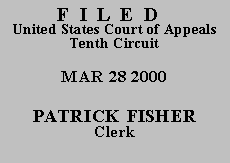

| JAMES MISENAR, |
|
| v. | |
| MARK MCKINNA, |
We review Mr. Misenar's contentions de novo, applying the same standards as the district court in the first instance. See Anderson v. Coors Brewing Co., 181 F.3d 1171, 1175 (10th Cir. 1999). Because Mr. Misenar is proceeding pro se, we liberally construe his petition. See Haines v. Kerner, 404 U.S. 519, 520-21 (1972); Hall v. Bellmon, 935 F.2d 1106, 1110 (10th Cir. 1991).
Mr. Misenar challenges the constitutionality of his transfer from a state prison in Washington to the private Crowley County Correctional Facility and apparently alleges a constitutional due process claim. Mr. Misenar contends that either the Western Interstate Corrections Compact, Colo. Rev. Stat.§§ 24-6-801 to -806 or the Interstate Corrections Compact, Colo. Rev. Stat. §§ 24-60-1601 to -1603, was the appropriate vehicle for transfer. Mr. Misenar contends he is entitled to a fair hearing regarding the transfer.
A prisoner may not challenge a transfer as violative of habeas corpus "unless the custody in which the transferred prisoner will find himself when transferred is so much more restrictive than his former custody that the transfer . . . [has] brought about . . . 'a quantum change in the level of custody.'" Pischke v. Litscher, 178 F.3d 497, 499 (7th Cir. 1999) (quoting Graham v. Broglin, 922 F.2d 379, 381 (7th Cir. 1991)). Mr. Misenar makes no allegation of a "quantum change" in the level of custody, and there is no evidence in the record that the private facility falls below Eighth Amendment standards for the treatment of prisoners. See Pischke, 178 F.3d at 500.
Finally, Mr. Misenar's transfer is authorized under Colo. Rev. Stat. § 17-1-104.5, which allows a private prison facility to enter a contract with a state if the Colorado private facility "is designed to meet or exceed the appropriate security level for the inmate." Mr. Misenar's suggestion that either the Western Interstate Corrections Compact or the Interstate Corrections Compact governs his transfer is in error, as each compact governs agreements between the State of Colorado and other States, not private entities. Mr. Misenar is not entitled to a hearing or release under this claim. See also Montanye v. Haymes, 427 U.S. 236, 242 (1976) ("Only disciplinary transfers having substantial adverse impact on the prisoner were to call for procedural formalities.").
As to Mr. Misenar's due process challenge, we are neither pointed to nor can we discern "any other provision of the Constitution that might be violated by the decision of a state to confine a convicted prisoner" in a privately-owned prison. Pischke, 178 F.3d at 500; see Montanye, 427 U.S. at 242 ("As long as the conditions or degree of confinement to which the prisoner is subjected is . . . not otherwise violative of the Constitution, the Due Process Clause does not in itself subject an inmate's treatment by prison authorities to judicial oversight."); Meachum v. Fano, 427 U.S. 215, 225 (1976) (reasoning that inmate's transfer to a maximum security facility, albeit one with more onerous conditions was "within the normal limits or range of custody which the conviction has authorized the State to impose"). We note that Mr. Misenar may refile his claim under section 1983, but he "would be foolish to do so" as his claim is "thoroughly frivolous." Pischke, 178 F.3d at 500. As such, we DENY Mr. Misenar's applications for a certificate of appealability and for leave to proceed in forma pauperis and DISMISS the appeal.
Entered for the Court,
Robert H. Henry
Circuit Judge
*. This order and judgment is not binding precedent, except under the doctrines of law of the case, res judicata, and collateral estoppel. The court generally disfavors the citation of orders and judgments; nevertheless, an order and judgment may be cited under the terms and conditions of 10th Cir. R. 36.3.